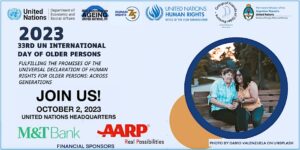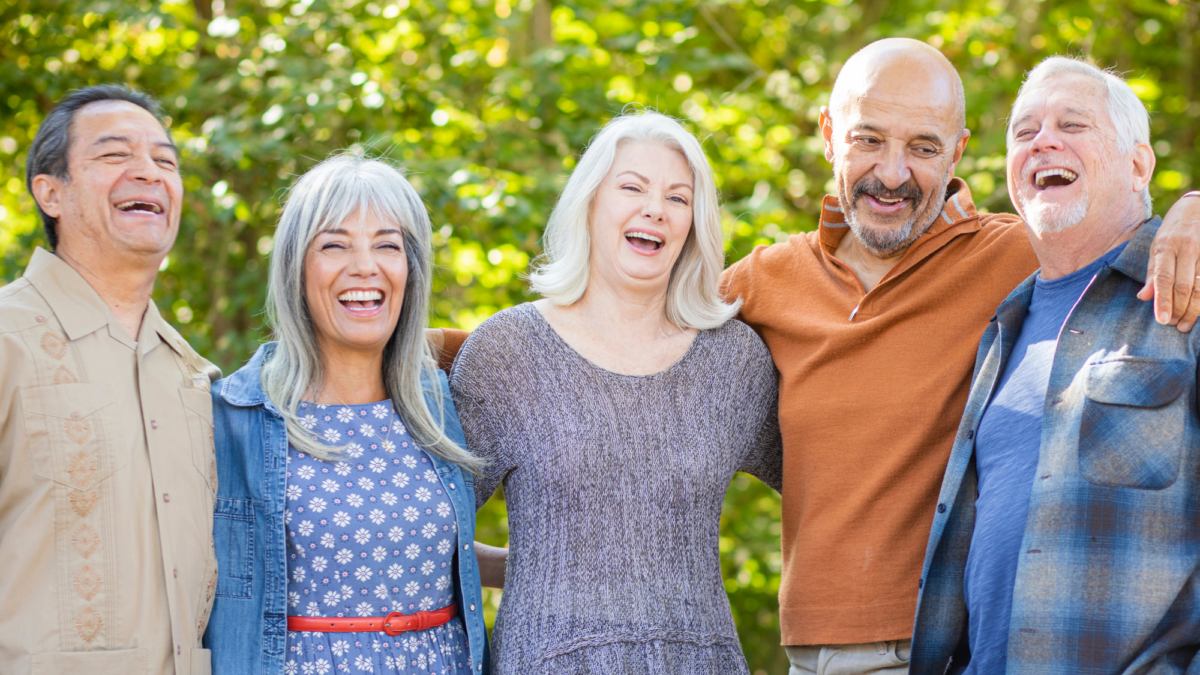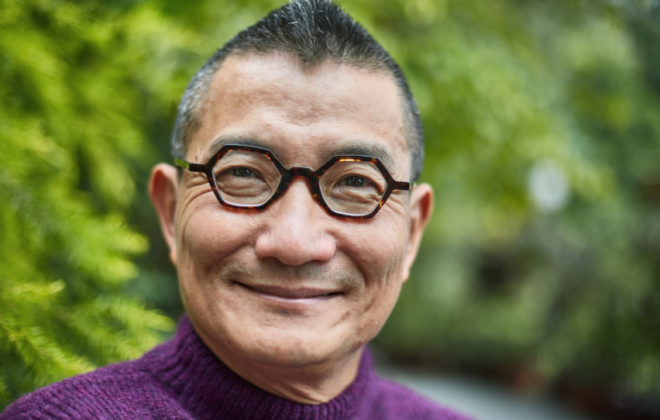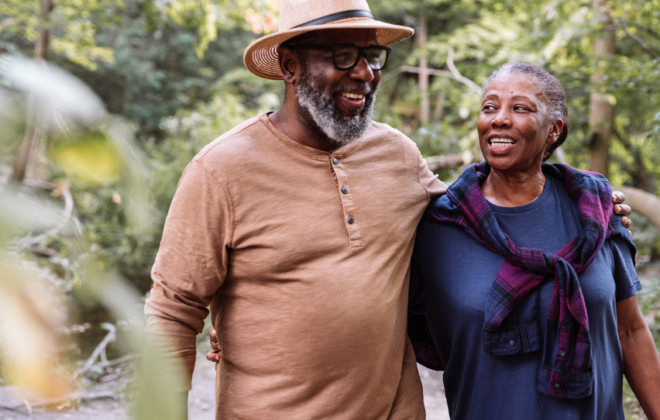International Day of Older Persons – 1 October, 2023
2023 Theme: Fulfilling the Promises of the Universal Declaration of Human Rights for Older Persons: Across Generations
Seventy-five years ago, the United Nations General Assembly adopted the Universal Declaration on Human Rights, a monumental document in the history of human rights. Written by representatives from around the world with different legal, cultural, and linguistic backgrounds, it is the first document articulating the fundamental human rights that are meant to be universally protected. In recognition of this milestone, and looking to a future that delivers on the promise to ensure that all persons, including all older persons, fully enjoy their human rights and fundamental freedoms, the 33rd commemoration of the United Nations International Day of Older Persons will focus on the theme of “Fulfilling the Promises of the Universal Declaration of Human Rights for Older Persons: Across Generations”. The event will put a spotlight on the specificity of older persons around the world, for the enjoyment of their rights and in addressing violations, and how the strengthening of solidarity through equity and reciprocity between generations offers sustainable solutions to deliver on the promise of the Sustainable Development Goals.
The work of the International Community around intergenerational solidarity has demonstrated, time and again, through various fora that intergenerational solutions, which are guided by the human rights principles of participation, accountability, non-discrimination and equality, empowerment and legality, can contribute to rekindle the legacy, relevance and activism of the Universal Declaration of Human Rights by empowering both youth and older persons to shift the needle of political will towards fulfilling the promises of the Declaration for all people across generations. More details
Objectives of UNIDOP 2023:
- To increase global knowledge and awareness of the Universal Declaration of Human Rights and generate commitments among all stakeholders to strengthen the protection of the human rights of current and future generations of older persons around the world;
- To share and learn from intergenerational models for the protection of human rights around the world; and
- To call on Governments and UN entities to review their current practices with a view to better integrate a life course approach to human rights in their work, and to ensure the active and meaningful participation of all stakeholders, including civil society, national human rights institutions and older persons themselves, in the work on strengthening solidarity among generations and intergenerational partnerships.

2023 INTERNATIONAL DAY OF OLDER PERSONS CELEBRATION:
Monday, October 2, 2023 10:00 AM – 1:00 PM ECOSOC Chamber UN Headquarters Visitors’ entrance, First Avenue and 46th Street
Background
On 14 December 1990, the United Nations General Assembly designated October 1 as the International Day of Older Persons (resolution 45/106). This was preceded by initiatives such as the Vienna International Plan of Action on Ageing, which was adopted by the 1982 World Assembly on Ageing and endorsed later that year by the UN General Assembly.
In 1991, the General Assembly adopted the United Nations Principles for Older Persons (resolution 46/91). In 2002, the Second World Assembly on Ageing adopted the Madrid International Plan of Action on Ageing, to respond to the opportunities and challenges of population ageing in the 21st century and to promote the development of a society for all ages.
The number of older people (defined as those aged 65 years or older) tripled from around 260 million in 1980 to 761 million in 2021. Between 2021 and 2050, the global share of the older population is projected to increase from less than 10% to around 17%.
Rapid growth in the number of people reaching older ages underscores the significance of promoting health, preventing, and treating illnesses throughout the entire course of life.
In societies with aging populations, it becomes imperative to adjust to the increasing number of elderly individuals who possess a diverse range of functional capacities. The capability to carry out essential functions and partake in everyday activities is influenced not solely by an individual’s inherent capacity but also by the social and physical environments in which they reside. Supportive environments play a pivotal role in assisting older individuals to maintain their activity levels and independence as they progress in age.





